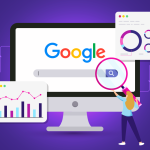Off-page SEO
Introduction to Off-page SEO
Off-page SEO can be compared to your website’s social life. You know how, in our personal lives, we grow our reputation by forming valuable connections, showing up in the right places, and having positive word-of-mouth circulating about us? In the digital world, Off-page SEO works in much the same way. It’s about building your site’s reputation across the internet by acquiring trustworthy backlinks, promoting your brand on social media, and engaging with your audience. In other words, Off-page SEO is the art of shaping how your website is viewed by search engines and real people across the web.
Table of contents
- Introduction to Off-page SEO
- What is Off-page SEO?
- Why Off-page SEO Matters
- Key Differences Between On-page and Off-page SEO
- Off-page SEO: Link Building Fundamentals
- Content Promotion Strategies
- The Power of Social Signals
- Local SEO and Off-page Efforts
- Brand Mentions and Reputation Management
- Forum Engagement and Community Building
- Broken Link Building Technique
- Influencer Outreach and Relationship Building
- Analyzing Off-page Metrics
- Common Off-page SEO Mistakes to Avoid
- Future Trends in Off-page SEO
- Conclusion
- Frequently Asked Questions (FAQs)

What is Off-page SEO?
Off-page SEO refers to everything you do outside of your website to enhance its visibility and reputation in search engine results pages (SERPs). It’s about gaining credibility from external sources—like backlinks from reputable sites, shares on social media, citations on business listings, and influencer endorsements. While on-page SEO focuses on elements within your site (keywords, meta tags, page speed, etc.), Off-page SEO takes the party elsewhere, letting you leverage the power of the broader internet community.
When done well, Off-page SEO can help your site rank higher, attract more organic traffic, and build a trustworthy online presence. By engaging in off-page strategies, you’re not just boosting your visibility; you’re also actively building relationships that can have a lasting impact on your business.
Why Off-page SEO Matters
Let’s say you create the perfect website with stunning design, impeccable on-page SEO, and content so good it practically sells itself. That’s amazing—but if nobody beyond your immediate circle knows about it, can you really expect it to skyrocket in the search rankings? Off-page SEO is crucial because it amplifies your reach, like a ripple effect in a pond.
- Increased credibility: High-quality backlinks from authoritative sites are signals to Google that your website is trustworthy.
- Improved rankings: The more credible your site appears, the more likely it is to rank higher for your targeted keywords.
- Enhanced exposure and referral traffic: External links, social mentions, and reviews all point potential customers and readers back to your site.
Off-page SEO is that final push that can transform a well-optimized website into a major player in your niche.
Key Differences Between On-page and Off-page SEO
When it comes to SEO, there’s a balancing act between on-page and off-page factors. Think of on-page as the foundation of a house, while off-page is the fancy landscaping and neighborhood appeal. Both matter, but each plays a different role.
On-page SEO in a Nutshell
On-page SEO deals with everything inside your website:
- Title tags, meta descriptions, and header tags
- Keyword optimization
- Site speed and mobile friendliness
- High-quality, keyword-rich content
It’s all about making the user’s experience as seamless and valuable as possible.
Off-page SEO in a Nutshell
Off-page SEO involves all external factors pointing towards your site:
- Backlinks from other websites
- Social media shares and signals
- Online reviews and brand mentions
- Guest posting and external content promotion
In short, Off-page SEO is about building a strong digital footprint beyond your domain.
Why Both Are Equally Important
Focusing solely on on-page or off-page won’t cut it. You need both for a comprehensive SEO strategy. A well-designed site with zero backlinks will struggle to rank, while a poorly optimized site with lots of backlinks might rank temporarily but will eventually fall short when users realize the content quality is lacking.
Off-page SEO: Link Building Fundamentals
Link building is like collecting votes of confidence from other websites. When a respected site links to your page, it’s as if they’re vouching for the value of your content. Search engines take these links into account when determining your site’s authority and relevance.
Off-page SEO: Types of Backlinks
- Natural Links: These are earned naturally when other sites find your content valuable and link to it without any request from your side.
- Manual Links: These come from outreach efforts, where you actively ask other sites to link to your content.
- Self-created Links: These are links you add yourself, like in forum signatures or blog comments, although they often carry lower SEO value and can be risky if used improperly.
The Anatomy of a Good Backlink
Not all backlinks are created equal. A quality backlink often has the following traits:
- Authoritative source: The linking domain has a strong Domain Authority (DA).
- Relevant content: The linking page is contextually related to your niche.
- Appropriate anchor text: The text used to hyperlink is relevant to your page’s content.
- Natural placement: The link is placed within relevant content, not shoved in random spots.
Link Building Mistakes to Avoid
- Buying links: Paid backlinks can lead to penalties from Google.
- Link exchanges on a large scale: Extensive reciprocal links appear manipulative.
- Using the same anchor text repeatedly: This looks unnatural and can trigger search engine red flags.
Content Promotion Strategies
No matter how brilliant your content may be, it needs a spotlight to shine. Content promotion goes hand-in-hand with off-page SEO, driving traffic and valuable backlinks.
Guest Blogging for Wider Reach
Guest blogging isn’t just about placing a link back to your site—it’s an opportunity to showcase your expertise to a new audience. Aim for reputable blogs in your niche, craft in-depth and original posts, and subtly guide readers back to your website.
Influencer Marketing for Off-page SEO
Collaborating with influencers in your field can significantly expand your brand’s reach. Influencers already have a trusted audience, and their endorsement can funnel targeted traffic to your site. Whether it’s a social media shoutout, a blog feature, or a podcast interview, influencer marketing can boost your authority and generate new backlinks.
Social Bookmarking Sites
Platforms like Reddit, StumbleUpon, and Pinterest can amplify your content’s visibility. When you share your articles or infographics on these sites, you tap into active communities that might find your content engaging and link-worthy.
The Power of Social Signals
Ever notice how some brands blow up on social media and suddenly appear in top search results? That’s partly due to social signals, which serve as indirect cues for search engines.
How Social Shares Affect Rankings
Although Google claims that social media shares aren’t a direct ranking factor, the buzz and traffic generated from social platforms can lead to more backlinks and brand mentions. In other words, if your content is trending on social media, it’s more likely to get noticed, shared, and linked to by authoritative sources.
Choosing the Right Social Platforms
Where is your audience hanging out? Are they on LinkedIn, Twitter, TikTok, or Instagram? Tailor your social media strategy accordingly:
- LinkedIn: Ideal for B2B and professional networks.
- Instagram: Visually driven, perfect for lifestyle and eCommerce brands.
- Twitter: Great for real-time updates and witty exchanges.
- Facebook: A broader user base, good for community groups and targeted ads.
Creating Engaging Social Media Content
You can’t just slap your blog link on social media and hope people will care. Experiment with compelling visuals, short video snippets, polls, and lively discussions. Engaging content sparks conversations, and conversations often lead to shares and backlinks.
Local SEO and Off-page Efforts
If you run a local business, your off-page SEO strategy needs to focus on local visibility. You want people in your vicinity to easily find you online.
Citations and Listings
A citation is any online mention of your business’s name, address, and phone number (NAP). These mentions appear in local directories, websites, and social platforms. When your citations are consistent across various platforms, it reinforces your legitimacy to both users and search engines.
Getting Positive Reviews
Online reviews can make or break a local business. High ratings on platforms like Google My Business, Yelp, or TripAdvisor can significantly increase your credibility and local search rankings. Politely encourage satisfied customers to leave reviews, but never resort to review manipulation tactics.
Partnering with Local Influencers
Teaming up with a local influencer or micro-influencer can bring targeted foot traffic to your store. For instance, if you own a bakery, collaborating with a local food blogger who raves about your pastries can generate immediate interest among local residents.
Brand Mentions and Reputation Management
Think of brand mentions as digital word-of-mouth. Each mention, whether linked or unlinked, can shape how search engines and potential customers perceive your brand.
Monitoring Mentions Online
Set up Google Alerts or use social listening tools to track whenever your brand is mentioned. Monitoring mentions not only helps with linking opportunities (“Hey, thanks for mentioning us! Could you kindly add a link?”), but it also allows you to quickly address negative comments before they spiral out of control.
Handling Negative Mentions
Negative mentions can feel like a storm cloud looming over your brand, but they’re also opportunities to show how you handle criticism. Respond politely, address the issue, and offer solutions. A well-handled complaint can sometimes convert an upset customer into a loyal fan.
Building a Consistent Brand Image
Consistency is key in branding. From the way you respond to comments online, to the tone of your social media posts, it all adds up to a cohesive impression. A brand that’s consistently reliable, engaging, and human will naturally attract positive mentions and links across the web.
Forum Engagement and Community Building
Engaging in forums might sound old-school, but communities like Quora, Reddit, and niche-specific forums are still bustling with activity.
Finding the Right Forums and Communities
Start by looking for forums where your ideal audience hangs out. Are they seeking solutions you can provide? Are they discussing topics directly related to your niche? Participate where you can genuinely help.
Contributing Value Instead of Spamming
Nobody likes a spammer. Offer real solutions, answer questions thoughtfully, and share insights. Only add links to your site when they’re genuinely helpful and relevant to the conversation. Over time, people will begin to view you as a reliable resource, which can open doors for more formal backlink opportunities.
Broken Link Building Technique
The internet is full of broken links, and that’s not necessarily a bad thing—at least not for you. Broken link building transforms dead ends on other websites into fresh opportunities for your own content.
Identifying Broken Links
Use tools like Ahrefs, SEMrush, or Screaming Frog to find broken links on high-authority sites in your niche. Look for pages that once linked to content similar to what you offer but now lead to a dreaded 404 page.
Pitching Your Own Content
Next, reach out to the site owner. Politely let them know there’s a broken link on their page, and suggest your content as a worthy replacement. If your content genuinely fills the gap, many webmasters will be happy to swap out the dead link for a fresh, relevant one, earning you a new backlink in the process.
Influencer Outreach and Relationship Building
Influencer outreach isn’t just about a quick shoutout; it’s about forging lasting relationships with people who are already trusted in your industry.
Creating a Genuine Pitch
When reaching out, show that you’ve done your homework. Mention something specific about their recent work or why you admire their expertise. Explain how collaborating could benefit both parties—maybe you offer a new angle or unique data they haven’t covered yet.
Nurturing Long-term Partnerships
Don’t just collect a single backlink and ghost them. Keep in touch. Comment on their social posts, share their new content, and look for future opportunities to collaborate. Over time, you’ll build a network of reliable contacts who can amplify each other’s work.
Analyzing Off-page Metrics
You can’t just set up an off-page campaign and call it a day. Tracking and analyzing the results is crucial to ensure your efforts are working.
Domain Authority and Page Authority
Moz’s Domain Authority (DA) and Page Authority (PA) are popular metrics for gauging your website’s SEO strength. Though these aren’t official Google metrics, they provide a snapshot of how well your pages might perform in search results. Keep an eye on these as you build links and form partnerships.
Off-page SEO: Tracking Referral Traffic
Use Google Analytics or similar tools to see where your traffic is coming from. If you notice a bump in referral traffic from a particular site or social platform, it means your off-page efforts there are paying off. Double down on strategies that bring results, and reconsider those that aren’t moving the needle.
Common Off-page SEO Mistakes to Avoid
Off-page SEO can be a double-edged sword. Done right, it boosts your credibility. Done wrong, you risk penalties and wasted resources.
Off-page SEO: Over-optimizing Anchor Text
It’s tempting to use exact-match anchors for every backlink, but Google’s algorithms are sophisticated enough to detect unnatural patterns. Diversify your anchor text with branded terms, generic phrases, and variations of your main keyword.
Off-page SEO: Not Diversifying Link Sources
An influx of backlinks from a single domain or type of website can look fishy. Aim for variety: blog mentions, news articles, social media links, and even local citations if applicable. A diverse backlink profile looks more natural and robust.
Future Trends in Off-page SEO
Off-page SEO is constantly evolving, influenced by changes in technology, user behavior, and search engine algorithms. By keeping an eye on future trends, you position your site to stay ahead of the curve.
Rise of Voice Search and AI
Voice search is here, and it’s growing. People now ask Siri, Alexa, or Google questions in a conversational tone. Sites that gain authority from credible sources will likely be the go-to answers for these voice-based queries. Artificial Intelligence tools will also increasingly shape how search engines evaluate external signals like backlinks and brand mentions.
Leveraging Video and Interactive Content
Video content on platforms like YouTube (which itself is a search engine) can be a potent off-page SEO tool. Interactive content, such as quizzes, polls, and webinars, also encourages social sharing and backlinks. If your content is engaging and valuable, people are more likely to talk about it and link to it across the web.
Conclusion
Off-page SEO is all about reputation, relationships, and reach. It’s the larger conversation happening about your brand outside of your own domain. From building quality backlinks and fostering influencer relationships to engaging on social media and monitoring your brand mentions, off-page efforts can dramatically enhance your site’s visibility and credibility. While on-page SEO lays the groundwork, off-page SEO is what invites the world to come and see what you’ve built. By balancing both, you’ll create a robust SEO strategy that stands the test of time and keeps your audience coming back for more.
Frequently Asked Questions (FAQs)
Both are equally important. On-page SEO is your website’s foundation, while off-page SEO expands your credibility and reach.
Off-page SEO is a long-term game. You may see some gains in a few weeks, but it can take several months to see significant improvements in rankings and traffic.
Most social media links are “no-follow,” which means they don’t directly pass link equity. However, they can still drive traffic and generate indirect benefits through increased brand visibility.
Yes, but it requires a systematic approach. You’ll need to identify and disavow the harmful links, clean up your link profile, and then submit a reconsideration request to Google.
Press releases can be beneficial if they’re newsworthy and distributed through credible channels. However, purely spammy press releases for the sake of backlinks are likely to yield poor results.







